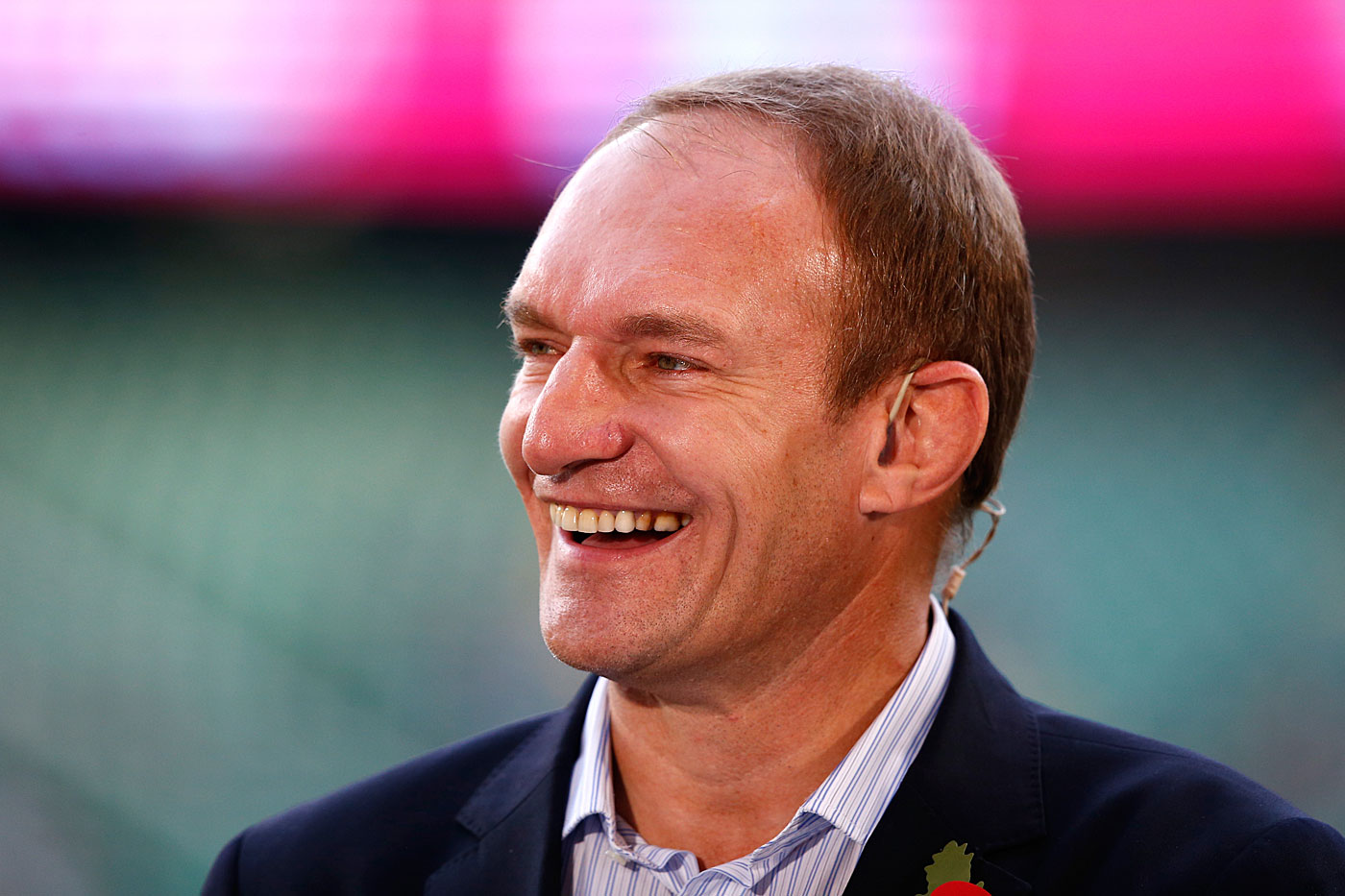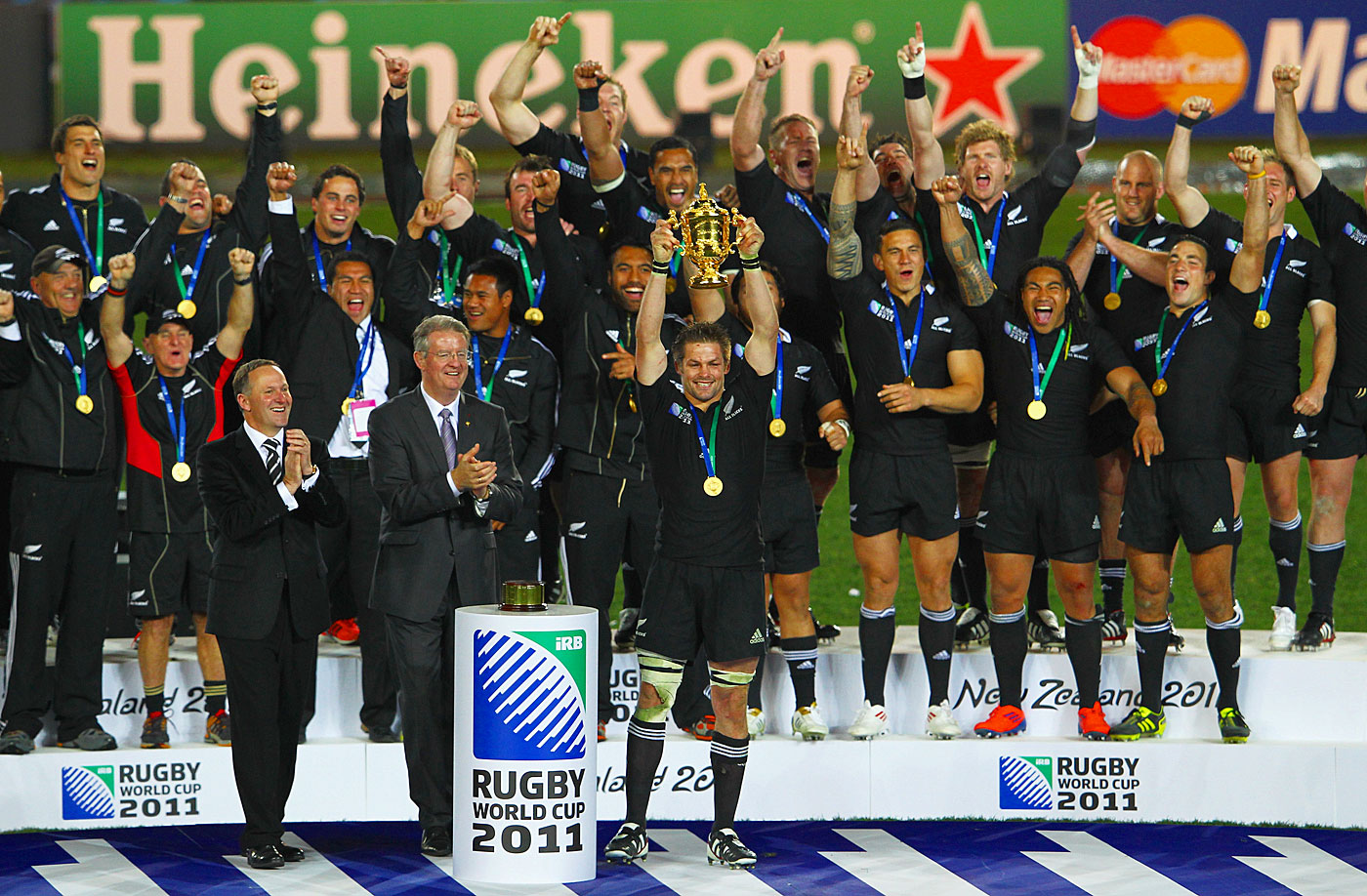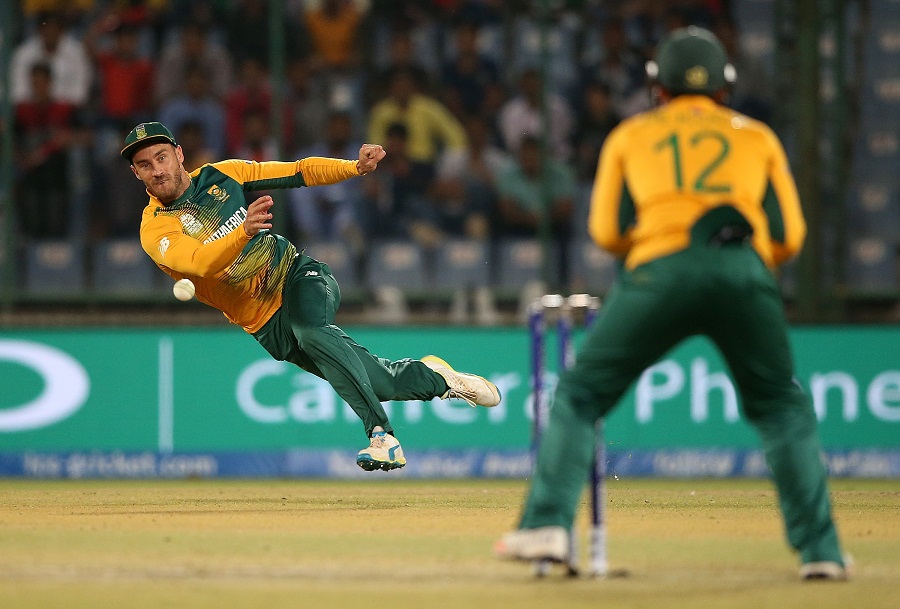Former South Africa rugby captain Francois Pienaar talks about his role on Cricket South Africa's review panel. INTERVIEW BY FIRDOSE MOONDA in Cricinfo

"I have been really privileged to get involved in high-performance teams that have won" © Getty Images
Despite consistently boasting some of the best players in the world, South Africa remain the only top-eight team that has never reached a World Cup final or World T20 final. After a year in which both the men's and women's teams crashed out of a major tournament in the first round, while the Under-19 team failed to defend their title, Cricket South Africa are determined to discover why and have appointed a four-person panel to investigate.
The highest-profile person on that panel is Francois Pienaar, the Springbok (rugby) World Cup-winning captain in 1995. He and coach Kitch Christie hold an enviable 100% winning record, while Pienaar also enjoyed great success at domestic level. It is hoped some of his knowledge will rub off on the cricketers.
Pienaar spoke at the launch of the Cape Town Marathon, for which he is an ambassador, about his involvement with Cricket South Africa's review panel, what it means to be a high-performance team, and how to create a winning culture.
Why did you agree to be involved in the CSA review?
Passion. I love this country and I have been involved in cricket - I've played cricket at school, I played Nuffield Cricket, I was involved in the IPL marketing when it came here in 2009. As a panel, we all know things about high-performance and closing out games. I have been involved in a number of initiatives where we've put structures in place and they have borne fruit. This is just a privilege, to be honest.
How will you and your fellow panelists approach the review?
What we will try and learn is what the trends over the last ten years are. We will look at trends, selection, stats and come up with recommendations.
What do you, specifically, hope to bring to the review?
A different thinking from not being in the sport, coming from outside the sport. I have been really privileged to get involved in high-performance teams that have won.
Can you talk about some of the teams you were involved with and how they achieved what you call high-performance status? In 1993, the Lions won 100% of their games.
In 1994, we won 90%. As captain and coach of the Springbok rugby team, Kitch Christie and myself, we never lost. There was a certain culture of that side and a way of doing things. Our management team fulfilled high-performing roles in getting us to get a shot at the title. Even then, there are no guarantees. When you get to the final, it's a 50-50 call and it's the smart guys who work out the margins. It's all about the margins.
Then I went over to England and rugby was really amateur. I was a player-coach at Saracens, I needed to put those processes in place and, luckily, took the team to win their first ever cup. Those sort of things I am really proud of.

A brand to admire: the All Blacks have won the last two World Cups © Getty Images
Have you seen anything similar to that in cricket?
Then I went over to England and rugby was really amateur. I was a player-coach at Saracens, I needed to put those processes in place and, luckily, took the team to win their first ever cup. Those sort of things I am really proud of.

A brand to admire: the All Blacks have won the last two World Cups © Getty Images
Have you seen anything similar to that in cricket?
I had a magnificent session with the Aussies before the Ashes in the early 2000s. They asked me to do a session on margins and big games and how to close out games. I was sort of embarrassed. The best cricket team in the world by a long shot was asking me, but I found it so interesting. My payment there was that I got an insight into how they run their team. Steve Waugh as a captain and a leader - wow! I got so much from that.
What makes a high-performance team?
What makes a high-performance team?
Culture trumps strategy for breakfast. If you don't have the right culture in any organisation, it's very hard to be a high-performance team. The brand must be stronger than anything else. CEOs and coaches and captains come and go but you have to understand the culture and the core of why teams are high-performance teams, and you can't tinker with that. As soon as you start tinkering with that, then you stand the risk of not remaining a high-performance team.
Look at the All Blacks brand [New Zealand rugby], and how they nurture and love and embrace that brand. One of the nicest things for me was at the last World Cup when Graham Henry, who coached them when they won the World Cup in 2011, was coaching Argentina and New Zealand were playing against Argentina in the opening match at Wembley. I was there. My question would be what would happen in South Africa if a team of ours - cricket, rugby, soccer - if the coach who had won the World Cup in the previous outing is now coaching the opposition in the opening match. Would we invite him to lunch with the team the day before the game? I think not. They did that. The All Blacks invited Henry because he loves the guys, he is part of that brand, part of that passion, so why should they not invite him? They knew, if we are not smarter than him, if we don't train hard, then we don't deserve to win. It's about the culture.
Then afterwards, Sonny Bill Williams gave away his medal. Was it him or part of the culture? I would think it's part of the culture. Same with Richie McCaw. Why did he not retire in the World Cup? Because if he did, it would have been about him and not about the team, and he knew it needed to be about the team. That's my take.
How do you create a winning culture?
Look at the All Blacks brand [New Zealand rugby], and how they nurture and love and embrace that brand. One of the nicest things for me was at the last World Cup when Graham Henry, who coached them when they won the World Cup in 2011, was coaching Argentina and New Zealand were playing against Argentina in the opening match at Wembley. I was there. My question would be what would happen in South Africa if a team of ours - cricket, rugby, soccer - if the coach who had won the World Cup in the previous outing is now coaching the opposition in the opening match. Would we invite him to lunch with the team the day before the game? I think not. They did that. The All Blacks invited Henry because he loves the guys, he is part of that brand, part of that passion, so why should they not invite him? They knew, if we are not smarter than him, if we don't train hard, then we don't deserve to win. It's about the culture.
Then afterwards, Sonny Bill Williams gave away his medal. Was it him or part of the culture? I would think it's part of the culture. Same with Richie McCaw. Why did he not retire in the World Cup? Because if he did, it would have been about him and not about the team, and he knew it needed to be about the team. That's my take.
How do you create a winning culture?
Let's go back to rugby. Every World Cup that has been won since 1987, the core of that winning national team came from the club side that dominated. So that side knew how to win. Like in 1995, the core of our team was from the Lions. If you infuse that culture with incredible players, they will enhance the way you do things.

"We will look at trends, selection, stats and come up with recommendations" © IDI/Getty Images
Are there other elements that go into creating a winning team?
Form is very important and so are combinations - they have to work very well - and then there is leadership. How do the leaders close a game down, how do they make decisions, and how do you work with other leaders in the team to do that?
Rugby is a fairly simple game: it's about how easy you release pressure, your exit strategy, and how you stay unpredictable on attack. For that to happen, there are certain elements that need to fall into place. But the overarching thing is, do you have the right culture, have the right guys in form, have the right combinations and the leaders? Can they execute? And by leaders it's not only the captain, it's the coaches, the management staff. If you can do that right, you will be competitive a lot of the time, and if you can bottle that so that when the next guy comes, you pass the baton - you can't change that. Bottle it, understand it, love it. You'll be on the right track.
Is one of South Africa's problems that they have not found a way of gaining or transferring that knowledge?
The transfer of knowledge is something I am quite interested in discussing. Do we do that, and what are the reasons for us not doing it? In rugby, we've never had that culture. We don't have ex-coaches, for example, involved. We have got universities, schools - how can we bottle that, how can we work together? The transfer of knowledge and the sharing of ideas, we need to rekindle that.
Will transformation form part of the review?
Everything is open for discussion and it should be. If you want to do a proper job, you should have the opportunity to ask questions about all elements that enhance high-performance.
